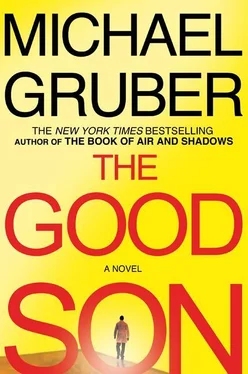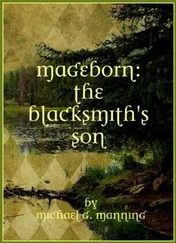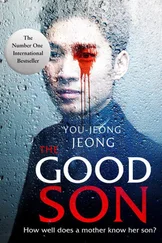The Indian laughs. “If only I could! Although I would be happy to instruct you in yoga. A few exercises and I assure you that you will despise Haldol.”
“Excellent! Well, now we must return to the business of the day, which I have already outlined. How shall we proceed in the matter of the cards?”
After a short discussion they decide to draw immediately, the loser to be the next victim when and if one is needed, that person to have the next presentation. As before, they each cut the deck and Sonia deals one card to each. As before, Ashton turns his over first. It is the deuce of clubs.
He says, “Well, fuck!”
Amin breaks the somber silence. “I am sorry, Harold. Truly sorry. You will give your presentation, I trust?”
“Oh, I’ll give it. I’ll give them an earful. You’ll forgive me if I wait for the fatal day itself.” With that he walks off.
All the others have middling cards, except Annette, who has drawn the queen of hearts. She goes over to where Ashton lies on his charpoy and speaks softly to him. The others do not hear what she says, but they hear Ashton’s snarling, obscene reply. She walks to her own bed and lies on it, pulling a blanket over herself.
Amin gathers the cards from where they lie scattered, shuffles them idly, and then says, “Well, we must pass the time. Would anyone like to play bridge?”
It turns out that Shea, Nara, and Schildkraut are all bridge players. They push charpoys together, designate one as the table, and begin playing. Sonia walks to where Ashton is lying and stands over him.
“What in hell do you want?” he says.
“To talk to you.”
“Oh, fuck off!”
She sits on the edge of his charpoy. “No. One of the disadvantages of prison is you can no longer select your visitors. I want to ask whether you intend to come apart like Cosgrove.”
“You mean will I cry and wet myself? What business is it of yours?”
“Because how you die is important. It’s important to this group, with respect to maintaining our spirits and our sanity and even more so with respect to how it’s regarded by the Pashtuns.”
“Oh, really? Is this a case for showing the flag in my last moments? The stiff upper lip? Bugger all that!”
“Yes, you’re in the period of self-pity. Oh, why me? It’s not attractive, Ashton, and unworthy of you. I’m prepared to wait until it dissipates.”
Ashton’s face reddens and he sits up and puts it close to hers. “You know what my chief regret is? Well, my two chief regrets. One is I’ve never had a fuck in an airliner toilet, and the other is that I’m not going to see you hacked into pieces. Isn’t that what they do to blasphemers? A leg from one side and an arm from the other?”
“According to some interpretations of sharia. Other variants require crucifixion or stoning. And it’s good that you’re angry. Angry and brave is a good combination. I think you’re a brave man, Ashton. It was brave to try to escape, stupid but brave, as you must have known. You’re not a fool. You’ve been traveling in this area for years. Manjit thinks you’re a spook, in fact. Are you?”
“If I were, you would be absolutely the last one I’d tell.”
“I’ll take that as a yes. So, since you’re brave, I’m imagining that you’re not afraid of dying per se, but object to the manner in which your death is going to be carried out. Is that it?”
Ashton stares at her. She meets his gaze. The staring goes on for what feels like a long time, after which she sees something change in his eyes, not resignation but a different form of anger, no longer directed at her but focused properly, on the guilty.
“Since you ask,” he says, in an artificially perky tone, “I do object. I never thought I’d make old bones, and I have to say the thought of snuffing out now is preferable to the way my parents died, with the tubes and the stinks, but what I can’t bear is being slaughtered like a sheep while those fuckers cheer. Isn’t that odd? I mean, why should one care? But I do. It gripes me.”
“I thought as much. It would gripe me too. Tell me, can you handle a Kalashnikov?”
For the first time in many days, she saw a smile flicker onto his face. “If I were a spy, I could, couldn’t I? Do you have one tucked away?”
“No. But neither do you have to die like a sheep. Listen!”
They talk for some minutes and then Sonia goes back to the bridge players. The day wears on, but no one comes to the door to demand the next victim. Dhuhr and Ashr prayers are called, and the game pauses while Amin and Sonia pray. Schildkraut has a coughing fit that does not stop, and they make him lie down. Annette is roused from her lethargy by the call of her patient. She nurses him as best she can with the scant contents of her medical kit, but he is gray in the face, with blue lips. The bridge game resumes, with Sonia as a fourth. She is not a bridge player, but she knows the rules and some of the simpler conventions. Manjit, who is the best player among them, takes her as his partner. After the Maghrib prayer they are fed their second meal of the day. They play cards for an hour or so after that, until it gets too dark. The Isha’a sounds. Those who pray, pray, and they all go to bed.

Some of them even sleep. Sonia, lying awake, continues to be surprised at the resilience of her fellow humans. In the house of death there is eating, sleeping, joking, and the playing of cards-with the same deck, as it happens, that condemns them one by one to death. She can identify the different sleep noises of her fellows by now. Amin, Manjit, and Shea are asleep, Annette and Ashton are not. She reflects on the wonderful differences in temperament among people, how these are often confused with the virtues and vices.
Schildkraut has a spasm of coughing. It ends and she hears him sigh and say something in German but she does not catch the meaning; her German is not as good as it was. She goes to his bed and kneels down.
“How are you, Karl-Heinz?”
“I have been better, thank you for asking. To be perfectly frank, I am dying. I cannot seem to get enough air.”
“Is your inhaler completely gone?”
“No, there remains another dose or two, but I am saving it for my presentation. I may be able to hang on until then.”
“You may outlive us all, given sufficient luck. What were you saying just now? It was in German.”
“Oh, nothing. A poem by Hölderlin that once meant much to Elsa and me. Wohl geh’ ich täglich. I seem to be reviewing my life, somewhat banal of course, but I am grateful that my brain is still capable of processing memory. That is the great fear, naturally, that we will fade away and never know it, but it is not my luck, so to speak, that I will exit with all my faculties intact. Do you know the poem? Wie lang ist’s! O wie lange! Der Jüngling ist gealtert, selbst die Erde, die mir damals gelächelt, ist anders worden. ‘How long ago it is, oh, how long! My youth has aged, and even the earth that once smiled upon me has changed.’ Or something like that. We used to sit and read poetry to each other, and I recall you saying you did the same with your husband. Elsa liked you very much.”
“I liked her. She was very kind to me.”
“To everyone. An actual Christian, one of the few I’ve met. I wish I could believe all of that, you know: some kind of life beyond the grave. It’s been twelve years since she died and not a day goes by that I do not miss her. I dream of her often, and in these dreams she seems wise in a way that she did not in life. So… projection, wishful thinking? Or does the psyche transform itself and survive, although in a way that’s not given to us to know? You’ve read Jung’s essay on the hereafter? Annoyingly vague in my view, but perhaps I didn’t understand him. Perhaps I should have stuck to psychotherapy and not wandered off into philosophy. And you, do you expect a place in heaven?”
Читать дальше













